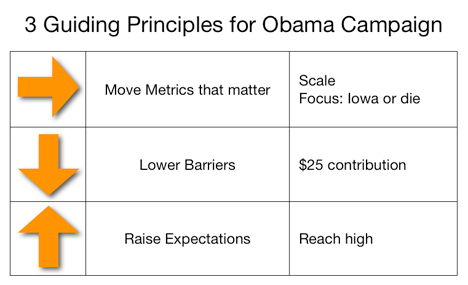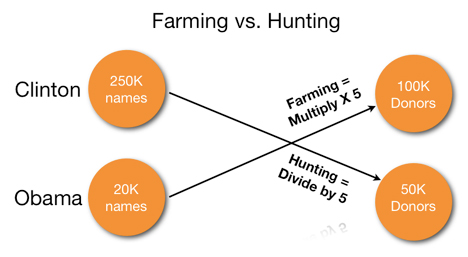Although I have a reasonable excuse for not blogging since March, my Kids have become my conscience telling me to update people. Facebook and Twitter are for updates, so instead, here are my ways of surviving the ordeal of cancer.
Originally I blogged because I joined Atlassian. My Inner Writer Nerd also wanted to come out. Then I crossed the line from business topics with my Cancer 2.0: the Killer App blog. No surprise, a lot more people read this. Two lessons: 1) Speak from the Heart and it’s way more interesting. 2) Business colleagues accept one crossing the line from business to something as starkly personal as cancer.
I am on leave from Atlassian, so writing about work is less likely. My focus needs to be elsewhere. So Dear Readers, I am Leaning into It, and will write about personal matters.
How do I survive this Cancer Thing? What would I say to a Cancer support group, which I don’t go to it because I find them depressing? Here are my Seven Survival Tips.
#1: Focus
I have one focus: Get Healthy. Whip Cancer’s Sorry Ass. Everything that follows here is in service of this one Big Goal.
What is difficult about focus? For one, I love my work. I even lurve it, as Woody Allen said. When I had cancer in 2004, I re-evaluated my entire life. I realized that I live here in Silicon Valley and work in technology for a reason: I love it.
My cancer, however, is not a mild or known variation. My cancer is an aggressive, unknown (4 cases ever) beast that grows tumors in my kidney region and attaches to valuable stuff. I have lost one kidney already.
Time to focus, buddy. Taking a leave from Atlassian sucks. I am honored to work in such a special place, and letting go is not fun. But now a singular focus is critical: Health.
#2: Focus on Short-term Goals
I focus on getting through short-term wins or “gates” in the treatment. My 2004 treatment lasted 10 months. This one will be shorter, but when you add up my chemo, surgery, radiation, and the possibility of the treatment changing anytime, long-term goals feel elusive.
An example is chemo treatments. Each one is an accomplishment. I focus on the reward of eventually eating like a Pig, going out, enjoying life, once the toxic crap dissipates.
Now my short-term goal is getting ready for surgery. Nothing else matters. Screw radiation; that’s down the road. I am working out every day to be in shape for surgery.
Remember the precept of good project management: never have a task longer than two weeks? If you an Atlassian-type or engineer, think about some Agile Development principles. Two week goals are great things. Chemo cycles tend to be three unfortunately!. Think short-term; otherwise, the disease is more debilitating mentally.
#3: Don’t Look Like a Patient
“It’s not how you feel, it’s how you look”, goes the Billy Crystal line. If I look good, I feel more invincible. I absolutely hate looking like a patient. Even in the hospital, I wear jeans and t-shirt rather than Their Goddamned Pajamas.
At one point chemo drove my weight down to 175 pounds. I’m 6’ 1” and can easily carry 190, and started chemo at 200 pounds. What did I do? I shaved my head, put on some nice clothes, got out my sunglasses and took this photo for an internal Atlassian blog.

Although I felt like shit, and could not wait to eat a meal, Ben Speakman, one of our developers at Atlassian commented back that I looked “Badass”.
Look like the healthy person you want to be. Be the change you seek.
#4: Follow Your Heart
Yes, my heart is in my work, but I can’t have that right now. My heart is also in my music, my art, reading, hanging with my family. I give these pursuits as much space as treatment allows.
I might call this “Re-Balancing” meaning: if you cannot pursue work, what pursuits can you fit in between hospital time, chemo infusions, treatments, countless doctors? For me, it meant making a project of my music and art. I finally set up a new iMac with all my art, photos, music, movies, and installed Protools for recording. I bought myself a keyboard, and transformed my home office into a real music room. Follow you heart.
#5: Exercise
No matter how feeble you are, get your Sorry Ass to a gym, go for a walk, anything to fight it. I started with a 12×8 centimeter tumor planted on my Psoas muscle. I was in so much pain, I couldn’t sit in a chair. Every day I was taking 160 mg Morphine, 900 mg Neuronton, and 50-60 Oxycodone/Percoet…

Once my tumor shrank from the chemo, I worked off the morphine. Then I started walking. Now I have zero pain and run at least 2 miles almost every day. I am on a Mission for God, and the God is My Health. Working out helps me mentally get through the agony of chemo, and I am certain, prepares me better for surgery.
#6: Live
That’s right: live. As a cancer patient, you are closer to death. It is trying to kill you. With some cancers, perhaps death is a long way off. With mine this time, the docs gave me a few months if I was not treated aggressively.
So I aim to live during this pain-in-the-ass treatment. Living, to me, means enjoying things you might now ordinarily do as a beaten-down patient. In 2004 during chemo, I flew my son to the Baseball Hall of Fame in Cooperstown, Yankee Stadium, and Fenway Park. I was told not to be in large public places while my immune system was weak. Sorry pal, I had to live while I could, and it was a trip my son will never forget.
During chemo this time, I played guitar at a local Stanford University Relay for Life. Here’s one of the tunes I played…
I love playing outdoors, and witnesses will tell you I was rather loud. Live, Baby.
#7: Be Positive
This could easily be my first tip, but I already blogged about the mental game in 2007, and recently when my cancer returned. Also, I am a natural optimist, so I really don’t do anything, I just am this way.
I also cannot say this to a patient after options have run out. I have had frightening diagnoses, but not that tough. I do know that every medical professional with whom I have discussed the power of positive thinking, strongly advocates it.
Focus on the positive. Tell cancer to “Piss off”


